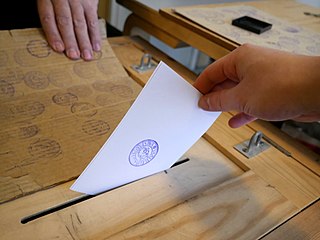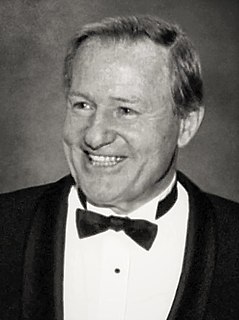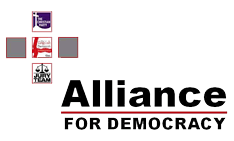Petition
Steve Baron applied to the Clerk of the House of Representatives in April 2003 for a petition under the Citizens Initiated Referenda Act 1993 for a referendum to make citizens initiated referendums binding on the government. 20,209 signatures were collected, well below the requirement of 10% of the voting population.
Along with Jonathan Eisen, Steve Baron was editor of the book People Power: How to make the government listen to you, for a change. He also stood as an independent candidate in Pakuranga in 2005, coming third which surprised many pundits.
The small Direct Democracy Party also advocates for binding referendums as does Democrats for Social Credit. The Direct Democracy Party did not stand candidates in the New Zealand general election, 2008, and Democrats for Social Credit are electorally insignificant.

Direct democracy or pure democracy is a form of democracy in which the electorate decides on policy initiatives without elected representatives as proxies. This differs from the majority of currently established democracies, which are representative democracies. The theory and practice of direct democracy and participation as its common characteristic was the core of work of many theorists, philosophers, politicians, and social critics, among whom the most important are Jean Jacques Rousseau, John Stuart Mill, and G.D.H. Cole.

The Green Left is a democratic socialist political party in Denmark. It was formerly known in English as the Socialist People's Party, the literal translation of its Danish name.

There are four types of elections in Finland. Each Finnish citizen at least 18 years of age has the right to vote in each of the elections, which decide the following: the president, the parliament, the MEPs, and the municipal and city councils.

The New Zealand Social Credit Party is a political party which served as the country's third party from the 1950s through into the 1980s. The party held a number of seats in the New Zealand House of Representatives, although never more than two at a time. It renamed itself the New Zealand Democratic Party from 1985 to 2018, and was for a time part of the Alliance from 1991 to 2002. It returned to the Social Credit name in 2018.

The Liberal Party is a liberal political party in the United Kingdom that was founded in 1989 as a continuation of the original Liberal Party by former members who opposed its merger with the Social Democratic Party (SDP) to form the Liberal Democrats. The party holds twelve local council seats. The party is showing both classical and social liberal tendencies.

Aotearoa Legalise Cannabis Party (ALCP), also known as the Cannabis Party, is a political party in New Zealand. It is dedicated to removing or reducing restrictions on the use of cannabis and similar substances.

The 1993 New Zealand general election was held on 6 November 1993 to determine the composition of the 44th New Zealand Parliament. Voters elected 99 members to the House of Representatives, up from 97 members at the 1990 election. The election was the last general election to use the first-past-the-post electoral system, with all members elected from single-member electorates.
The Kiwi Party was a political party operating in New Zealand between 2007 and 2011. Briefly known as Future New Zealand, it was a breakaway from the United Future New Zealand party and sought to carry on the tradition of Future New Zealand. The party was formed when MP Gordon Copeland left United Future after a dispute over support for the Crimes Amendment Act 2007. At the 2008 general election, the Kiwi Party was unsuccessful, and was not re-elected to Parliament. It did not contest the 2011 general election under its own banner, but the leaders and other members stood for the Conservative Party.
An independent or non-partisan politician is a politician not affiliated with any political party or bureaucratic association. There are numerous reasons why someone may stand for office as an independent.

Referendums are held only occasionally by the Government of New Zealand. Referendums may be government-initiated or held in accordance with the Electoral Act 1993 or the Citizens Initiated Referenda Act 1993. Nineteen referendums have been held so far. Fourteen were government-led, and five were indicative citizen initiatives.

The League of Social Democrats (LSD) is a social democratic party in Hong Kong. Chaired by Chan Po-ying, wife of Leung Kwok-hung, it positions itself as the radical wing of the pro-democracy camp and stresses on "street actions" and "parliamentary struggles". It currently holds two seats in the District Councils.
Gary Thomas Knapp is a former New Zealand politician of the Social Credit Party.
The Electoral Reform Coalition (ERC) is a group advocating electoral reform in New Zealand. It was founded in 1986. The group has been reformed as the Campaign for MMP to fight to retain Mixed-member proportional representation at the 2011 referendum on the issue.

The 2009 New Zealand Referendum on Child Discipline was held from 31 July to 21 August, and was a citizens-initiated referendum on parental corporal punishment. It asked:
Should a smack as part of good parental correction be a criminal offence in New Zealand?
The 2011 New Zealand voting system referendum was a referendum on whether to keep the existing mixed member proportional (MMP) voting system, or to change to another voting system, for electing Members of Parliament to New Zealand's House of Representatives. It was held on 26 November 2011 in conjunction with the 2011 general election.

The Alliance for Democracy was an electoral coalition of two British political parties, the English Democrats and the Jury Team. The Christian Party, and Veritas were associates.

The 1999 New Zealand MP reduction referendum was held during the 1999 general election on 27 November 1999. The Referendum considered two questions, in which one brought upon the question on whether New Zealand Parliament should be restructured - reducing the number of MPs from 120 to 99 members in the House of Representatives.
Thrive New Zealand, formerly called the Unified New Zealand Party, was a small political party in New Zealand. The party was founded in 2012 by David Ding, a marketing manager.
A referendum is a direct vote in which an entire electorate is asked to either accept or reject a particular proposal. This article summarises referendum laws and practice in various countries.

The inaugural Liverpool City Region mayoral election was held on 4 May 2017 to elect the Liverpool City Region Combined Authority and won by Steve Rotheram. Subsequent elections were planned for May 2020 but were postponed until May 2021 due to the covid pandemic with subsequent elections due every four years. The metro mayor will have control over the whole Liverpool City Region combined authority area which consists of the following local authorities:
This page is based on this
Wikipedia article Text is available under the
CC BY-SA 4.0 license; additional terms may apply.
Images, videos and audio are available under their respective licenses.











